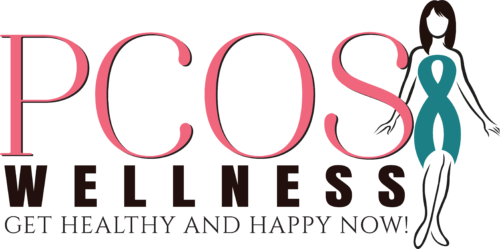
How PCOS and Diabetes Affect Each Other – And Your Moods
PCOS and diabetes are intricately linked. Up to half of women with PCOS will end up with Type 2 diabetes, a good deal of it “early onset,” meaning you get diagnosed at a much younger than expected age. Usually, we think of diabetes as a disease of middle age, but people are getting diagnosed even in their teens with Type 2. I was diagnosed at age 32, which means I’ve been living with diabetes for over two decades at this point.
PCOS experts now believe that most women (over 2/3, according to Marshall and Dunaif, 2012) with PCOS also have insulin resistance, which is at the root of Type 2 diabetes.
What is insulin resistance?
Insulin allows your cells to absorb the glucose you consume. If the cell isn’t healthy enough to respond properly, it will not allow the glucose or fuel to be taken in and used, and then you have insulin resistance. Women with PCOS have high rates of insulin resistance, pre-diabetes, and diabetes.
Anything that we’d call a carb has glucose, or sugars in it. Even vegetables, fruit, and milk have carbs. They’re still healthy foods, but you may need to be mindful of how much or what types you’re eating.
What’s the deal with insulin resistance, pre-diabetes, diabetes, and mood?
Insulin resistance, pre-diabetes (that place between knowing you have insulin resistance and actually developing full-blown diabetes), and diabetes are all inflammatory states. PCOS is also a chronic inflammatory state.
Inflammation contributes to mood disorders like depression and anxiety as well. About 2/3 of people with diabetes also have depression. If you have PCOS, insulin resistance, pre-diabetes, or diabetes, you are at a much higher risk for depression.
What can I do to improve my health?
When you have PCOS, you and your doctor should assume that you have insulin resistance, unless and until you have evidence that it’s not the case. One of your primary treatment goals should be to reduce insulin resistance, with the goal of preventing pre-diabetes or diabetes.
When you improve insulin resistance, you will improve not only your risk for diabetes but also your mental health.
The best ways to improve insulin resistance are through exercise and nutrition:
1. Consistent daily – or almost daily – exercise like weight training, walking, and yoga will help improve insulin resistance dramatically. For some tips on how to get started, or keep going, with an exercise plan, see my blog Exercise Quick Tips for Women with PCOS.
2. Reducing unhealthy carbs and increasing healthy carbs in your diet will also help to dramatically improve your insulin resistance:
3. Don’t drink your calories/carbs/sugars. No sodas, juices, sweetened coffee beverages, milkshakes, or smoothies (unless you’re sure it’s a low-carb recipe).
4. As much as possible, eliminate the processed sugars and flours from your food repertoire – white flour, white sugar, pastries, pies, cookies, cakes, most crackers, buns, and breads. Pasta and white rice too, except in small quantities – half a cup to a cup is okay. Same with white potatoes. I don’t believe in completely and permanently eliminating any foods, unless you’re allergic to them or have celiac disease, but the truth is, most of us just can’t handle the excess.
5. Increase your intake of good carbs. Make sure you’re getting a couple servings of fruit each day, and as many green vegetables as you can handle. An easy way to do this is to make at least one meal a day vegan or vegetarian. Good carbs also include things like almond flour, quinoa, steel-cut oats, brown rice, yams, etc. Including the more carby vegetables in limited quantities provides important variety, increased nutrients, and satisfaction.
6. A lot of people suggest that all dairy should be banned when you have PCOS, but like everything else, I think it’s a personal call. Take a stand on dairy, and try adhering to whatever it is for a month. See how you feel physically and mentally. Most of us can handle a little ½ and ½, grass-fed butter, or Greek yogurt without a problem. But not all of us. If you substitute other “mylk,” make sure you’re not choosing a high-carb version that’s sweetened.
7. Be gentle with yourself as you make these changes. There’s no such thing as perfection, but you can get better and better while reducing insulin resistance, brain inflammation, and mood symptoms.
8. And don’t forget to join my private Facebook group for support and to share your experiences, at PCOS Psychology!
Reference:
Marshall, J. C., & Dunaif, A. (2012). All Women With PCOS Should Be Treated For Insulin Resistance. Fertility and Sterility, 97(1), 18–22. http://doi.org/10.1016/j.fertnstert.2011.11.036
Session expired
Please log in again. The login page will open in a new tab. After logging in you can close it and return to this page.
